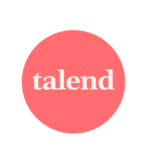Compare Mulesoft and Talend Data QualityComparison | |
|---|---|
MulesoftMuleSoft provides the easy-to-use tools you need to automate your way to higher productivity and lower costs. Equip any team to automate with clicks or code. Find out more | Talend Data QualityTalend Data Quality gives you quality controls to profile, clean, and mask data in any format or size to deliver data governance for trusted and compliant data. Find out more |
| Try Mulesoft | Try Talend Data Quality |
| Why you should consider it | |
|---|---|
| |
| What are the benefits? | |
| |
| Things to look out for | |
| |
| Who is it for? | |
| |
| Features | |
Business Analysts
Keep up to date about API Design offers like Mulesoft
PrivacyMulesoft
Mulesoft is an integration platform that helps organizations connect their applications, data, and devices.
It enables users to build application networks that connect data and applications across on-premises and cloud systems.
It is used by organizations of all sizes, from small businesses to large enterprises.
Who Should Use Mulesoft?
Mulesoft is ideal for organizations that need to integrate multiple applications, data sources, and devices.
It is also suitable for organizations that need to build application networks to connect their applications, data, and devices.
Key Benefits and Features
- Connects applications, data, and devices
- Enables users to build application networks
- Integrates multiple applications, data sources, and devices
- Provides a unified platform for integration
- Supports a wide range of protocols and technologies
- Offers a range of tools for building, testing, and deploying applications
How Does Mulesoft Compare to its Competitors?
Mulesoft is a powerful integration platform that offers a wide range of features and benefits.
It is more comprehensive than its competitors, offering a unified platform for integration and a range of tools for building, testing, and deploying applications.
It also supports a wide range of protocols and technologies, making it a great choice for organizations that need to integrate multiple applications, data sources, and devices.
Help & Support
- What is an API?
- An API (Application Programming Interface) is a set of protocols, routines, and tools for building software applications. APIs allow developers to access and interact with application data and services in a secure and consistent way.
- What is an integration?
- An integration is a connection between two or more applications, systems, or services. It allows data to be exchanged between them, enabling them to work together and share information.
- What is iPaaS?
- iPaaS (Integration Platform as a Service) is a cloud-based platform that enables organizations to connect applications, data, and devices in the cloud and on-premises. It provides a unified platform for building, managing, and deploying integrations.
- What is MuleSoft?
- MuleSoft is a leader in API-led connectivity, helping organizations unlock their data and applications, both on-premises and in the cloud, to create a unified view of their customer.
- What is Anypoint Platform?
- Anypoint Platform is a unified, single solution for iPaaS and full lifecycle API management. It provides a complete solution for designing, building, managing, and deploying APIs, integrations, and other connectivity solutions.
- What is API-led connectivity?
- API-led connectivity is a method of connecting and exposing assets across an organization. It is based on the idea that data, processes, and events should be connected in a way that is secure, consistent, and well-managed.
Talend Data Quality
Talend Data Quality is a comprehensive data quality solution that helps organizations ensure the accuracy and completeness of their data.
It provides a range of features and tools to help organizations cleanse, standardize, and enrich their data, as well as monitor and report on data quality.
Talend Data Quality is designed for organizations of all sizes, from small businesses to large enterprises.
Key Benefits and Features
Talend Data Quality offers a range of features and tools to help organizations cleanse, standardize, and enrich their data.
These include:
- Data profiling and analysis to identify data quality issues
- Data cleansing and standardization to ensure data accuracy and completeness
- Data enrichment to add additional context to data
- Data monitoring and reporting to track data quality over time
Who Should Use Talend Data Quality?
Talend Data Quality is designed for organizations of all sizes, from small businesses to large enterprises.
It is ideal for organizations that need to ensure the accuracy and completeness of their data, as well as monitor and report on data quality over time.
How Does Talend Data Quality Compare to Its Competitors?
Talend Data Quality is a comprehensive data quality solution that offers a range of features and tools to help organizations cleanse, standardize, and enrich their data.
It is designed to be easy to use and is more affordable than many of its competitors.
Help & Support
- What platforms does Talend Data Quality support?
- Talend Data Quality supports a range of platforms, including Windows, Linux, and Mac OS X.
- What features does Talend Data Quality offer?
- Talend Data Quality offers a range of features, including data profiling, data cleansing, data enrichment, data matching, and more.
- How does Talend Data Quality help organizations improve data quality?
- Talend Data Quality helps organizations identify and correct data errors, improve data accuracy, and ensure data consistency and completeness.
- What is Talend Data Quality?
- Talend Data Quality is a suite of data quality tools that help organizations ensure the accuracy, consistency, and completeness of their data.
- What are the benefits of using Talend Data Quality?
- Talend Data Quality helps organizations improve the quality of their data, reduce costs associated with data errors, and increase customer satisfaction.
- What types of data can be managed with Talend Data Quality?
- Talend Data Quality can manage structured and unstructured data, including customer data, product data, financial data, and more.

